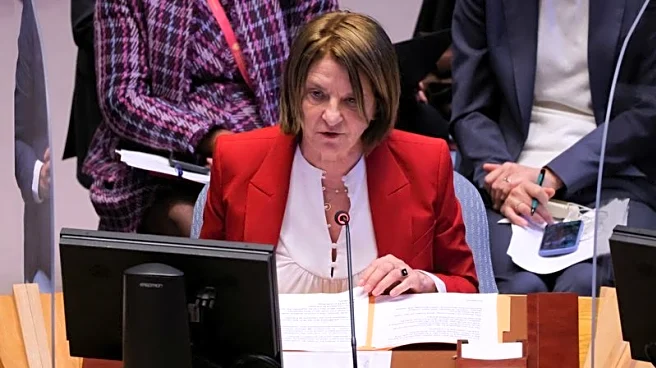Rapid Read • 8 min read
Formula One, a leading motor racing organization, has reported a significant reduction in its carbon emissions, achieving a 26% decrease since 2018. This reduction is part of its commitment to reach net zero emissions by 2030. The organization has implemented various strategies, including the use of renewable energy sources such as solar and biofuels, and sustainable aviation fuel for travel and freight. Ellen Jones, head of environmental, social, and governance at Formula One, highlighted the changes in operations and technologies that have contributed to this milestone. The sport has seen reductions across major categories, including factories, logistics, event operations, and travel. Remote operations and strategic scheduling changes have also played a role in lowering emissions.
AD
The shift towards renewable energy in Formula One is a significant step in addressing environmental concerns associated with motor racing. By reducing its carbon footprint, the organization is setting a precedent for sustainability in sports, potentially influencing other industries to adopt similar practices. The reduction in emissions aligns with global efforts to combat climate change, as outlined by the Intergovernmental Panel on Climate Change. This move not only enhances Formula One's environmental credentials but also addresses criticisms from activists regarding the sport's impact on the environment. The initiative demonstrates the potential for large-scale events to operate sustainably while maintaining their global appeal.
Formula One plans to continue its efforts towards achieving net zero emissions by 2030. The organization aims to introduce new hybrid engines powered entirely by advanced sustainable fuel next year. Additionally, further changes to race schedules and increased use of remote operations are expected to contribute to ongoing emission reductions. The upcoming Brazilian Grand Prix, scheduled before the United Nations Climate Change Conference, will be a critical event for showcasing Formula One's commitment to sustainability. The organization will likely face continued scrutiny from environmental groups, necessitating ongoing transparency and innovation in its sustainability strategies.
The transition to renewable energy in Formula One could have broader implications for the automotive industry, encouraging manufacturers to invest in sustainable technologies. The sport's commitment to reducing emissions may also influence public perception, promoting greater awareness and support for environmental initiatives. As Formula One continues to innovate, it may drive advancements in sustainable fuel technologies, benefiting both the racing industry and wider transportation sectors. The organization's efforts highlight the importance of integrating environmental considerations into business models, potentially leading to long-term shifts in industry standards.
AD
More Stories You Might Enjoy












